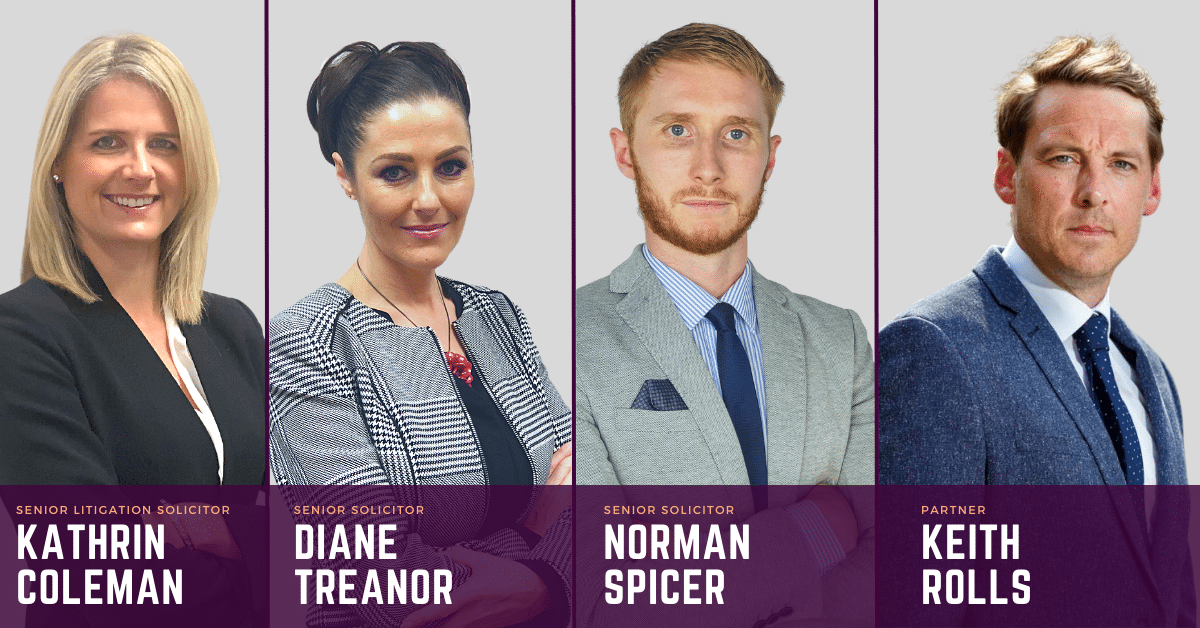More than 2,000 complaints lodged against dentists in the past four years

Our solicitors at Coleman Legal LLP are experienced in dealing with discrimination cases in the workplace. To speak with one of our experienced team, please complete the callback form below.
Ending the outdated patterns of inequality in the workplace 27% of LGBT respondents reported being called hurtful names by work colleagues, 15% were verbally threatened and 7% were physically threatened. One in ten people have been absent from work as a result. (Irish Survey)
SOURCE: Mayock et al, 2009 by GLEN
Equality in the workplace is a key priority for the approximately 130,000 lesbian, gay, bisexual, and transgender (LGBT) people at work in Ireland. There are legal protections in force that protects LGBT employees including the Unfair Dismissals Act, the Employment Equality Act, and the Civil Partnership Act. There has been huge social and legislative progress for LGBT people in Ireland over the last 20 years. Even though progress has been slower for transgender employees, European Court judgments have expanded the prohibition on the gender ground in the Employment Equality Act to also include transsexual people.
More and more organisations in Ireland are taking steps forward to adapt to the fairly recent International Human Rights Laws, setting out the principles by which a healthy and harmonious work environment is attainable, thus, bringing higher rates of integration, performance, and productivity.
The employment equality act 1998 expressly prohibits discrimination in the workplace on the grounds of sexual orientation – see protections under the employments act here, and as per the second principle of the Yogyakarta principle:
“Everyone is entitled to enjoy all human rights without discrimination on the basis of sexual orientation or gender identity. Everyone is entitled to equality before the law and equal protection of the law. “
It is often disregarded such action of abuse in the workplace due to the many varied factors that one can hold onto and suppress oneself from taking action, for the likes of, financial distress or being too fond of your current job.
We outline below some scenarios where abuse may present itself:
However, the existence of statutory protection in and of itself will not eliminate discrimination and inequality in the workplace. A look at the statistics from the UK and Ireland is illustrative of ongoing problems:
7.9% of those at work report that they have experienced bullying within the past 6 months – an equivalent of 159000 individuals. The sectors with the highest rates of bullying are education, public administration, health and social work and transport and communications, with between 12% and 14% incidence rates. Generally, the rate in the public sector is higher than in the private sector.
One in eight (13%) lesbian, gay and bi employees would not feel confident reporting homophobic bullying in their workplace. A quarter (26%) of lesbian, gay and bi workers are not at all open to colleagues about their sexual orientation.
The Irish Human Rights and Equality Commission sets out the following information in relation to discrimination in Ireland for employees
The law which deals with discrimination in relation to goods and services is the Equal Status Acts 2000-2015 (ESA). The ESA prohibits discrimination on nine specific grounds.
You are entitled to be treated equally in relation to the provision of goods and services:
In addition, discrimination in the provision of accommodation and related services and amenities is unlawful on the grounds that you receive rent supplement, housing assistance, or any payment under the Social Welfare Acts. (The housing assistance ground).
The Employment Equality Directive (2000/78/EC) has banned employment discrimination based on sexual orientation in the European Union. The aim of the directive is to ensure that sexual minorities enjoy equal treatment in the workplace. Both direct discrimination (differential treatment based on specific characteristics) and indirect discrimination (any provision, criterion or practice which puts the included categories at a disadvantage) was covered by the directive – and harassment was also deemed to constitute discrimination. All 28 EU Member States have already transposed this directive. It is important to mention that the directive covers gay, lesbian and bisexual individuals, but not transgender and intersex persons.
The Employment and Social Security Directive (2006/54/EC) aims to combat discrimination based on sex, including against trans people, in relation to employment and social security, including access to employment, training, pay and working conditions, and the freedom to join unions and professional organisations.

If you are a survivor of sexual abuse, physical abuse, emotional abuse, or neglect, and you wish to explore your legal rights, our team has many years of experience dealing with victims of all forms of abuse, including institutional abuse, clerical abuse, childhood sexual abuse, abuse within the family or in any other situation where the abuse occurred.
Our sexual Assault solicitors Nationwide can help you through the entire legal process should you wish to proceed, and put you in touch with various organisations that are there to help. We understand that any form of abuse is extremely distressing for the victim and their family, and we deal with each case on a personal, one-to-one basis with compassion, empathy and understanding. If you have been the victim of sexual assault or sexual abuse, please get in touch with Diane Treanor either by email or freephone us at 1800 844 104 for a Free Case Evaluation.
Contacted us at
Solicitors
84 Talbot Street, Dublin 1
D01 YX60
DX 112002
Free Phone: (1800)844104
Fax: (01) 5312727
Email: [email protected]
Web: www.colemanlegalpartners.ie
Online Enquiry Form: Apply
Tell us about your case

Head of Client Services
(1800)-844-104
[email protected]
”At Coleman Legal, excellence in customer care is paramount. We aim to meet both prospective and existing client’s needs in a professional, engaging, and friendly manner with a clear objective to give quality legal advice and reach a positive outcome.”